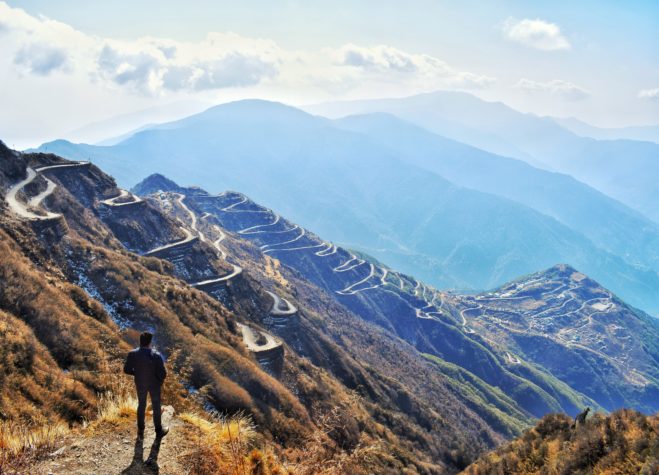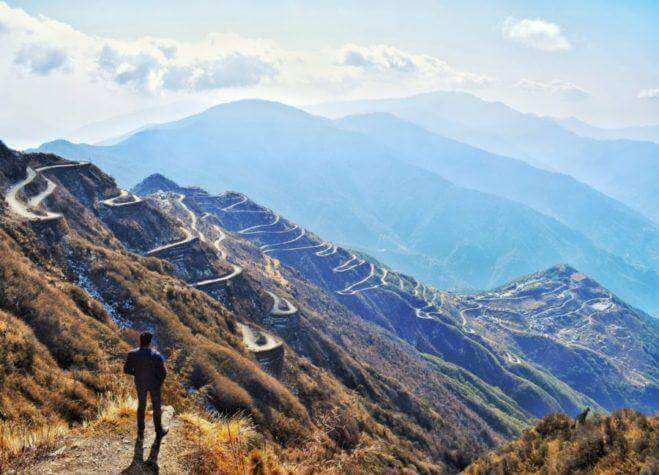[Quick heads up: Over at StartupBlink, we’ve launched our 2020 Global Startup Ecosystem Report – ranking startups across 1,000 cities in 100 countries. Check it out!]

Our first Covid podcast was dealing with the shock factor to our lives and trying to think big picture – what can we learn from this lockdown?
The second pod talked about how we can make the most of this Coronavirus quarantine by building skills and keeping an eye to the future.
In this one, we’re looking ahead and talking exit strategy. How is travel going to change? What will be the future of nomadism in this new world? And what can we do to go back to our roots in our previous lifestyle?
This period of going back – it’s not going to be as simple as before. Think: Travel restrictions, special visas, medical clearances, health tests upon arrival. … It might even be adventurous if we’re being optimistic – adding interesting wrinkles to our reality.
Still… We’d like to think it can be better than before. Let’s analyze what travel might look like and how we can adjust:
Wanna hear more? Subscribe on Stitcher, iTunes, Spotify, or wherever!
Disclaimer: When looking to the future of travel, nobody is a prophet
… And we’re aware that the assumptions and predictions we make here will likely be entirely false. And, honestly, we hope some of it won’t be true and in a few months we’ll laugh it all off.
This is a guessing game when it comes the future. The consensus around this virus seems to be that it’s here to stay for the long-term. At least year and a half. That’s an optimistic timeline based on, again, our non-expert perception of the news.
So this is the timeline we’re operating under. It’s not the end of the world – that’s part of our mindset here – so let’s not freeze our lives for the next 1.5 years. There’s going to be a way to make the best out of this while still somehow traveling.
As we’ve said before, the world is going to be much more closed off and our opportunities to cross borders will be tremendously limited. This actually means that for the first time, there’s a bit of poetic justice: Our strong passports aren’t guaranteeing free movement like they used to. A good, high-quality passport like that of the U.S. or EU might now be weakened to the previous level of other nations. At the very least, it might build some empathy for us spoiled nomads.
It can even a fun idea – that new limitations on our travel will emerge. The old rules of it being easier for the rich world and harder for the poor world might go out the window, to some extent. Much more will be determined by the infection levels and healthcare status of each individual’s home nation.
Also, travel restrictions will likely be heavily affected by different seasons of the year. Traveling in warmer months will undoubtedly be easier… As will traveling from warmer countries. If you’re arriving from a country going through a cold wave, you may face more difficulties.
So these are the transitions that we may see… But again, they’re total conjecture.
Connecting the future of travel to the future of nomadism
If we’re following the prior assumptions, here are the trends that very likely will pop up as a result:
- People will move towards the safer zones. The New Zealands of the world, if you will. As digital nomads, we’re going to be be more interested in these spots. But… We’re going to face a game of supply & demand; you likely won’t be so welcome coming from a non-safe zone.
- Most of us are going to prefer summer destinations. This was already the case, of course, but now we’ll see this to the extreme. Simply because it’s possible that hot locales are going to be hit less severely.
- We’ll value a well-connected destination. It’ll be impossible not to take into account a potential exit plan. How easy will it be to leave a destination if another wave of covid crops up? What are the chances all flights get canceled and you get stuck?
- And we’ll lean towards organized infrastructure. Similarly, you don’t want to get stuck in a country with poor health services, a subpar human rights record, or notable bureaucracy issues. The adventure of these spots probably isn’t worth the risk. Especially when you can just as easily go to a country where the smallest obstacles won’t result in red tape.
And, you know, we may very well see tourism vanish to some degree. Weekend trips to the Canary Islands, for instance, are not going to be so commonplace anymore.
So – the amount of tourists we see in the world will drastically decrease. For us, this isn’t a terribly bad thing; we’ve talked before about how travel has suffered a lack of authenticity. This right here might be a great time for some of that authenticity to naturally return. We’re entering a brave new world… Where you’ll be relatively brave just for being on the road.
The future of nomadism might lie within your home country
To extend off the previous numbered points, no country but your home country is better for avoiding the travel risks that will come up.
For the first time, the prospect of traveling within your home country will look considerably more attractive. Because:
- You’ll have your best government support
- You’ll have your best access to healthcare
- You will run the least risk of any civil rights issues
This is the best time for homebound nomadism. And consider this: all countries are being affected by lack of tourism; now, your previously unattractive country is completely lacking tourists. Which means travel-related prices will go down, that aforementioned authenticity will go up, and you can enjoy the world in your background with unrivaled safety and certainty.
Connected is a somewhat sad reality: This will be the golden age of stopping nomadism. If any of you are having doubts, need a break, or end up setting some roots in your home, your nomadic chapter might be hitting an end. You never know – the minute you start growing roots, life might turn on you…
… And you might just wake up in the morning with an attachment or two.
So those are the two ways present nomads might respond:
- Traveling more in our home (/nearby) countries
- Ditching this lifestyle and building a life that better suits this reality
Nomadism is both on the downfall… And on the rise
We will lose a lot of established digital nomads to the travel restrictions right now. That seems pretty certain.
But in the long-term, the future of nomadism doesn’t look bad at all.
Now, if it does in the future, it won’t be in the next few years. Especially considering how difficult of a plunge the digital nomad transition is without any pandemics. You have your doubts and your reservations and your natural roadblocks.
Doing it under a Covid reality will add a huge layer of complexity.
That said, when the Coronavirus is somewhat behind us, there will be a set infrastructure and acceptance of remote work that will allow the lifestyle to pick up in full-swing.
So they’re colliding trends, but they’re operating on different timelines.
One more trend: Our favorite slow travel will be the norm
Bouncing between countries… That quick backpacker lifestyle… In our immediate future of nomadism, you can say goodbye to it.
There will be costs to transitions between destinations. We’ll have to be much smarter and more practical with limiting our border crossings.
Which is, in a way, a silver lining: We at BecomeNomad always advocate for slower travel anyway, but especially here – to reduce unnecessary strains of uncertainty.
Ending on a philosophical note: Embracing nomadic change wherever you are
Nomadism is all about change. And our most apparent change has always been the change of locations.
However, some of us will use this period while very slowly traveling – or playing super defensive and not traveling – to put more emphasis on our own personal change. On our own self-definitions.
So… It’s possible some of us will find a way to stay nomadic while not moving. Just by embracing the nomadic mindset and working on who they are instead of where they are.
Hopefully though… We’ll be wrong and the next few years won’t be so severe to our lifestyles!
Again – none of this is clear to anyone. We’re still trying to consume more information to decide best steps for the future. But everything discussed here feels like a reasonable prediction moving forward. We’re just trying to find that middle ground of being cautiously optimistic while staying realistic.
What are your thoughts on the future of nomadism? Agree with some of our predictions? Are we being idealistic? Or overly pessimistic? Let us know below!



0 Comments